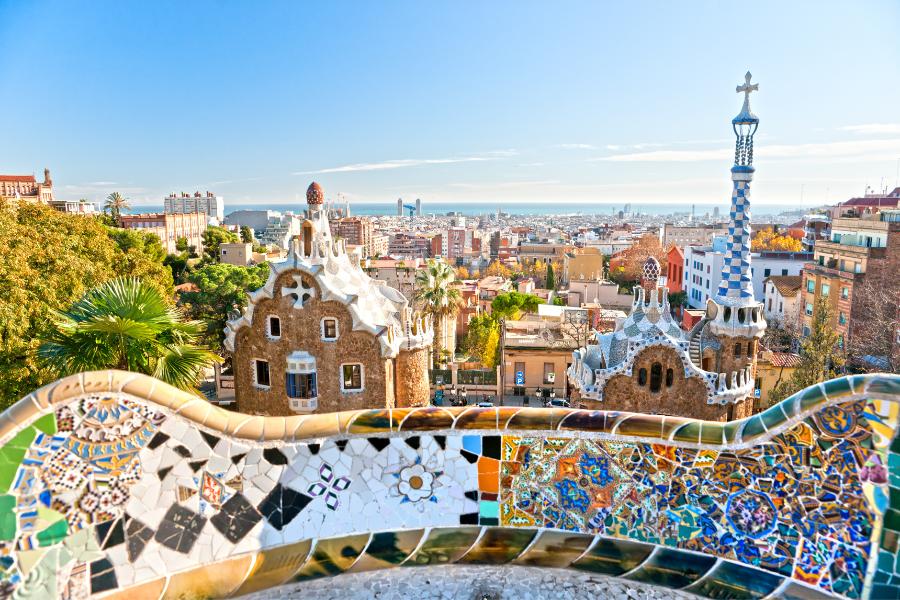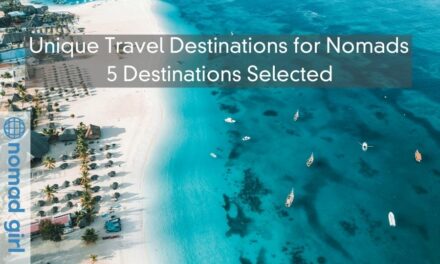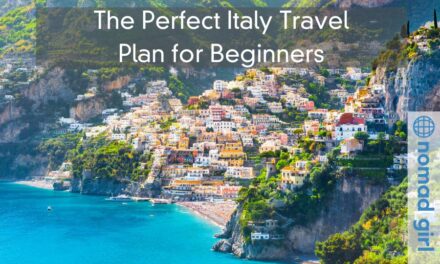In recent years, Spain has become a sought-after destination for foreigners seeking a new home. Over 40,000 people have chosen to make Spain their residence, attracted by its rich culture, beautiful landscapes, and high quality of life.
However, as the future of the Spain investment visa also known as Spain’s Golden Visa hangs in the balance, exploring other pathways to Spanish residency is essential, especially for digital nomads. This article delves into the current Golden Visa requirements and explores various alternatives for securing residency in Spain.
Why Spain?
Spain consistently ranks as one of the top European countries for foreign residents, and it’s easy to see why. The Mediterranean climate offers sunny days and mild winters, creating an idyllic environment for year-round living.
The quality of life in Spain is also commendable, with an accessible public healthcare system, a robust public transport network, and a vibrant cultural scene.
Spain’s cuisine, renowned globally, promises a gastronomic delight with its fresh produce and traditional dishes, particularly in the Mediterranean regions.
The cost of living is another significant draw; renting a one-bedroom apartment in Madrid‘s city centre might set you back around €1,000 a month, whereas a similar setup in London could cost over £2,500.
Safety is another feather in Spain’s cap, making it one of the safest countries to reside in Europe.
The Golden Visa – Current Situation
The Golden Visa, a highly coveted residency option in Spain, is facing potential changes. This visa, which allows non-EU nationals to obtain residency through significant investment, primarily in real estate, has been under scrutiny by the Spanish government.
Housing pressures and the socialist government argue that the Golden Visa is not the model that Spain needs. The proposed modifications aim to tighten the requirements, particularly concerning real estate investments.
Those interested should act swiftly or seek expert advice to navigate the impending changes. More about the potential scrapping of the Golden Visa can be found in this Politico article.

The Golden Visa – Specifics and Benefits
The Golden Visa program, introduced in 2013, was designed to attract foreign investment to Spain.
The primary requirement is a real estate investment of at least €500,000. This investment can be spread across multiple properties, allowing investors to diversify their holdings.
Once the investment is made, the Golden Visa offers several significant benefits:
- Residency for the Investor and Family: The Golden Visa grants residency not only to the investor but also to their immediate family, including spouses and children under 18, or older children who are financially dependent.
- No Minimum Stay Requirement: Unlike many other visas, the Golden Visa does not require holders to reside in Spain for a minimum number of days each year. This flexibility is particularly appealing to investors who wish to maintain their primary residence elsewhere.
- Path to Permanent Residency and Citizenship: After five years of continuous residency, Golden Visa holders can apply for permanent residency. After ten years, they may be eligible for Spanish citizenship, provided they meet certain conditions, such as proficiency in the Spanish language and integration into Spanish society.
- Travel Within the Schengen Area: Golden Visa holders enjoy visa-free travel within the Schengen Zone, facilitating easy movement across 26 European countries.
These benefits have made the Golden Visa a popular option among foreign investors, particularly from China, Russia, and the Middle East.
Alternatives to the Golden Visa
Non-Lucrative Visa
The Non-Lucrative Visa is an excellent option for those who can sustain themselves financially without engaging in business activities in Spain. This visa suits retirees or individuals seeking a sabbatical year in the sunny Iberian Peninsula. Here are the key details:
- Financial Requirements: Applicants must demonstrate sufficient financial means to support their stay in Spain. This typically involves showing proof of a regular income or substantial savings. The minimum required income is approximately €27,115 per year for the main applicant, plus €6,778 for each additional family member.
- Healthcare Coverage: Applicants must have comprehensive private health insurance coverage for the duration of their stay in Spain.
- Duration and Renewal: The Non-Lucrative Visa is initially granted for one year. It can be renewed for two subsequent periods of two years each, and after five years of continuous residency, holders can apply for permanent residency.
- Prohibited Work: Holders of this visa are not permitted to engage in any work or professional activities in Spain. This visa is purely for individuals who can live off their savings or passive income.

Digital Nomad Visa
As remote work gains traction worldwide, Spain has introduced the Digital Nomad Visa, catering to professionals who wish to combine work and travel. Launched in 2023, this visa is designed for individuals employed by companies outside Spain or self-employed individuals with clients predominantly outside Spain. Here are the Spain digital nomad visa requirements:
- Employment and Income Proof: Applicants must demonstrate that their company has employed them for at least one year or that they have a freelance relationship with clients. Proof of a minimum income level is required, typically around €2,000 per month.
- Duration: The Digital Nomad Visa is initially granted for one year and can be renewed for two additional years, leading to a maximum of three years of residency.
- Remote Work: Applicants must prove that their work can be performed remotely and that they have a reliable internet connection to support their work.
- Healthcare Coverage: Similar to the Non-Lucrative Visa, applicants must have comprehensive private health insurance.
Student Visa
Spain’s Student Visa allows international students to reside in the country for the duration of their studies, research, or training programs. Here’s what you need to know:
- Acceptance Letter: Applicants must present an acceptance letter from a Spanish educational institution, confirming their enrollment in a full-time course.
- Financial Proof: Applicants must demonstrate sufficient financial means to support their stay in Spain. This can be shown through bank statements, scholarships, or sponsorships.
- Duration: The Student Visa is valid for the duration of the academic program, typically ranging from one to four years, depending on the course of study.
- Work Permission: Students on this visa can work part-time (up to 20 hours per week) during the academic year and full-time during holidays, provided the work does not interfere with their studies.
- Health Insurance: Applicants must have private health insurance coverage or be covered by a public health insurance scheme.
Self-Employed Work Visa
For entrepreneurs and freelancers, the Self-Employed Work Visa offers a path to Spanish residency. Here are the key details:
- Business Plan: Applicants must present a viable business plan, demonstrating the economic viability and job creation potential of their business.
- Financial Proof: Applicants must show they have sufficient funds to support themselves and their business venture. This includes evidence of personal savings and financial projections for the business.
- Permits and Licenses: Depending on the type of business, applicants may need to obtain specific permits or licenses to operate legally in Spain.
- Healthcare Coverage: As with other visas, comprehensive private health insurance is required.
- Duration and Renewal: The Self-Employed Work Visa is initially granted for one year and can be renewed for additional periods, leading to permanent residency after five years of continuous residency.
Legal Considerations and Assistance
Navigating the Spanish visa landscape can be complex. Therefore, consulting an immigration lawyer who specializes in Spanish law is advisable.
These professionals can ensure that all documentation is accurate and complete, streamlining the application process.
They can also provide personalized advice on which visa best suits individual needs and preferences, ensuring compliance with all legal requirements and avoiding potential pitfalls.
Conclusion
Spain offers numerous avenues for those wishing to relocate, each with its unique set of requirements and benefits.
Whether through the Non-Lucrative Visa, the Digital Nomad Visa, the Student Visa, or the Self-Employed Work Visa, there are ample opportunities to make Spain your new home.
With the Golden Visa under threat, it’s crucial to act fast if you are considering this option or explore these alternatives to find the best fit for your lifestyle and aspirations.
Spain awaits, ready to offer its sunny skies, rich culture, and welcoming embrace to new residents.
Spain Digital Nomad Visa
Are you a non EU/EEA national and you dream of staying in Spain beyond the 90 days per 180 days as per the Schengen Visa? There is a Spain Digital Nomad Visa you can read more about it here.
Spain Digital Nomad Visa – Requirements and Application Process


















